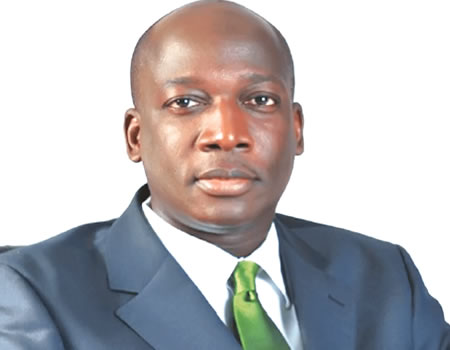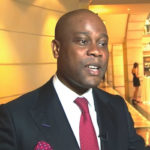Our business focus in Nigeria
FOR us in Unilever, what is important is that we are a consumer good company, that is very much concerned about what happens in the community. Nigeria is a global priority and has been a global priority for Unilever for a long time. We believe that Nigeria would play a prominent role in the future of the world. And, for that reason, we have to be a part of that journey, by delivering value and providing solutions to everyday problems that Nigerians face. That is our very core foundational principle as to why we are here. On global priority, we believe that Nigeria is a nation, whose people, whose fate, is inextricably linked to the future of the world, and which, therefore, we have to associate with. Another thing is that we are a long-term investor in Nigeria. We have been in Nigeria since 1924. We are not one of such floating entities that disappear at the first signs of trouble. We have been here through liberation struggles. We have been here through military rule. We have been here through democratization, through recession and even Ebola. Since we are a long- term investor, that is why we go into a market, like we have done in Nigeria, and see ourselves as a fabric of that nation. We know that some multinationals pull out at the first signs of trouble, but we don’t even talk about that. I remember during the recession, I was asked by one of your colleagues, and I said it’s not on the card. We think about how to build a long-term footprint. Generally, in life, as in business as well, it is when people are in trouble that you form relationships of trust. That is where we stand and that is what we have always believed in. So when I talk, I see myself as a representative of a business that sees itself as a Nigerian. And my core mandate and those of others on the Unilever Nigeria end is to understand the Nigerian people and community, in the full belief that if we do that. We would then be rewarded.
85 percent of company’s Turnover, manufactured locally
It is also important to say that 85 percent of our turnover is manufactured locally, and increasingly, we are part of efforts at building the industrial ecosystem of Nigeria. We believe that if we have very strong growth vision in Nigeria, it is important we get the industrial base of the country, the supply ecosystem to develop and evolve. So we go around the world, in our various capacities, talking about the growth story here, in Nigeria. A story that we can illustrate with our own numbers and our own trajectories. As we speak, we are the fastest growing business in the Unilever world. So when we speak, we speak with a certain degree of authority, not just talking about a future that we are not a part of. For now, the headline may not be glossy and glorious, when it comes to conversation about Nigeria, but people are doing things here. We have to look at the reality, because the headline does not always represent the reality. So we can be an example of global businesses that come to Nigeria, that do things with the Nigerian people, that then increase the viability of business in general. And by sharing that experience, we invite people to come here. For examples, machine suppliers, agric industry and others. But, at the same time, we also work with the people to build local, industrial capabilities. For example, the amount of packaging that we source from outside Nigeria has gone up, astronomically. We are working with people in heavy industrial base on how to transform cassava to serve as raw materials for tooth paste, on how to assist people with global technology that is available to us, to build that industrial base. We are working with Nigerians in this endeavor. We are also doing things in the area of maize and cassava to produce starch that we now use in our industrial system.
What we intend to achieve with Unilever Sustainable Living Plan
Over the last three years, we have increased in thousands, the number of people who are employed in our route- to- market system. The peasants, the people who have never been part of the formal economy. People who were brought into the formal economy by giving them products on credit, giving them selling skills, and in addition to doing all of that, helping them to build the distribution and penetration of our systems. So, I’m not talking about blind charity, here. I’m talking about a situation where everybody is a winner. And, the economic empowerment of their communities has gone up, significantly. So everybody wins in the process. We call it Unilever Sustainable Living Plan, which is our business model. It is essentially saying, when you go into a business endeavor, there are multiple stakeholders. For example, in some systems, everything is for the shareholders, but we have never believe that. Shareholders are very important stakeholders, so is the consumer, so is the customer, so are people who are going to use the product, so are governments who will create the enabling environment in which we can compete. We believe that you have a winning model, when you have a model that make all of these active.
ALSO READ: Our tales of tears, poverty and death —Ex-Nigeria Airways’ staff
Why naijacentricity
We believe passionately that we are part of this community. We must celebrate the things that are worthy of celebrating in Nigeria, through our marketing, through our distribution, through our suppliers, in building resilience model, especially in a country where the headlines are not always positive. It is our responsibility, through what we do, to be a good example. When Understanding the Nigerian people and celebrating them is at the core of what we call naijacentricity. So in our brand-building efforts, for example, we celebrate the Nigerian culture. Some of the connections with that will surprise you. We spend time with designers, with academics, with film makers even with music industry. Nollywood guys were in our office, sometimes ago. We are trying to understand through them, what are the instincts and impulses that they use to mobilise in Nigeria, and what are the relevant things that our brands can pick from there. So the more we build our brands, the more we showcase the excellence of Nigeria, in that regard. And, the more we showcase the excellence of Nigeria, the more our brands are built. So we have a synergistic relationship. We know there are challenges. But we believe that our brands should be part of the resolutions of challenges of society. If you take some of our hand-washing brands, for example, we go all out to teach the people the proper ways to wash their hands, because when they do that, some of the illnesses caused by improper washing, by contracting germs, will be taken away. And a thriving community is what produces a thriving businesses. There are many other examples that we can use. Our nutrition program. We have big toothpaste businesses. We are the market leader in that regard, and we see it our responsibility to teach people on the right way to maintain oral health. So that is what we call the Unilever Sustainable Living Plan. We tend not to believe in what is called CSR, if it is defined as something you do at the end of business to serve your conscience. We believe that everything that you do must improve the society.
Maintaining a safe environment
Then there is the other leg which is the work that is done in the supply chain. All factories and so on and so forth, have a certain kind of impact. So how can we make it secular. That is a huge amount of work. How do we ensure that we are not generating waste, which in the past they said it’s thrown away? But the world knows now that there is no ‘away’. You throw something now, it comes back to you, one way or the other. How do we work with modern technology, learning from the community, benchmarking to reduce our energy intensity? How do we use renewable energy? All of those make sure that as a business, we show the world that business does not have to be extractive in order to be able to make money. That is something that keeps us. When you grow, definitely you create jobs, and the employment footprint goes up. At the end of the day, I think that the biggest way of giving dignity to people is to give them some sort of economic independence and we are very proud we participate in that.
Every brand in our portfolio, playing a critical role
It is like asking me as a father who among my children is the favourite. It’s always very difficult to answer. We believe we are building a portfolio that is competitive. There are different roles for the brands and every brand in our portfolio is playing an extremely important role. Some are playing the role of sustaining the business, today. Some are playing the role of being the future engines of growth. But the fact remains that we are relevant to the Nigerian people, and the only thing I want to say to you is that I love all my children.





